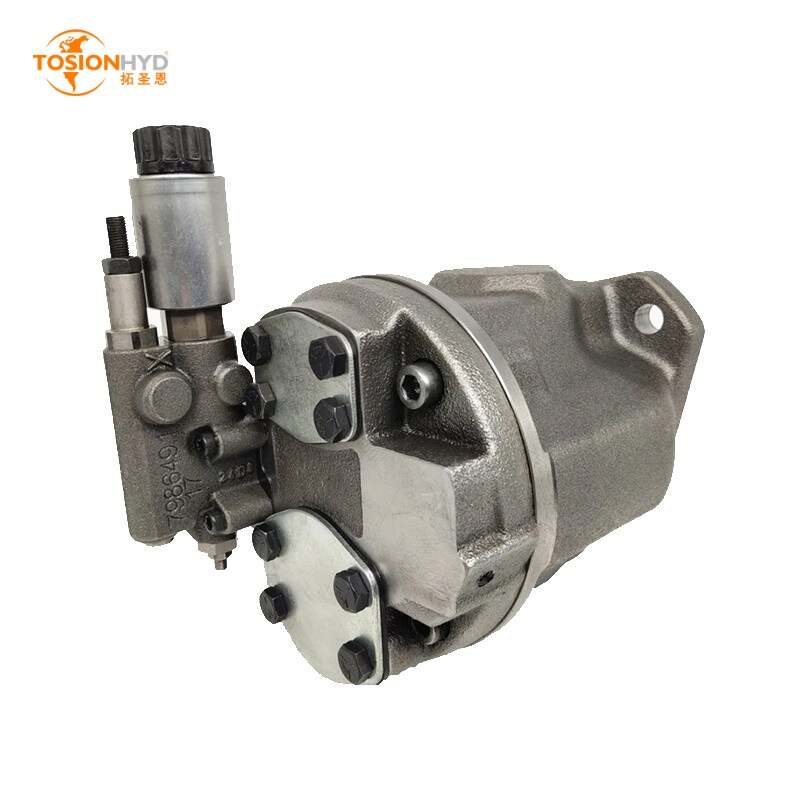Email format error
Email cannot be empty
Email already exists
6-20 characters(letters plus numbers only)
The password is inconsistent
Email format error
Email cannot be empty
Email does not exist
6-20 characters(letters plus numbers only)
The password is inconsistent


How to Choose the Right Rexroth Piston Pump for Your Hydraulic System
Selecting the right Rexroth piston pump is one of the most important decisions you’ll make when designing or upgrading a hydraulic system. The pump is the “heart” of hydraulic machinery—it ensures reliable power delivery, efficiency, and long service life. But with so many models and configurations available, how do you know which one is the best fit for your application?
This guide breaks down the key factors you need to consider when choosing the ideal Rexroth piston pump, helping you make a smarter investment for your hydraulic system.
Understanding the Role of a Rexroth Piston Pump
A piston pump converts mechanical energy into hydraulic energy, delivering pressurized fluid to power different components of a system. Rexroth piston pumps are widely used in industries such as construction, agriculture, mining, and manufacturing because they combine:
-
High efficiency for energy savings
-
Robust durability under demanding conditions
-
Flexibility with multiple control options and configurations
By matching the right pump to your system’s needs, you avoid issues such as overheating, cavitation, or premature wear.
Factors to Consider When Choosing a Rexroth Piston Pump
1. Flow and Pressure Requirements
The first step is to determine your hydraulic system’s required flow rate (L/min or GPM) and operating pressure (bar or PSI). Rexroth piston pumps come in various sizes and displacements to handle both low- and high-demand applications.
-
High-flow systems (like large excavators) need pumps with higher displacement.
-
Precision applications (like machine tools) may require lower flow but very stable pressure.
2. Fixed vs. Variable Displacement Pumps
-
Fixed displacement pumps deliver a constant flow and are simpler, more cost-effective, and suitable for basic systems.
-
Variable displacement pumps adjust flow depending on system demand, offering higher efficiency, reduced heat generation, and longer system life.
Most modern hydraulic systems favor variable displacement Rexroth pumps for their energy-saving benefits.
3. Control Options
Rexroth offers multiple control methods, including:
-
Pressure compensation (maintains set pressure)
-
Load-sensing control (adjusts flow to match demand)
-
Electronic proportional control (precision control for automation)
Choosing the right control ensures smoother performance and better energy efficiency.
4. Operating Environment
Consider the working conditions your pump will face:
-
Harsh environments (dust, dirt, or temperature extremes) require models with higher durability and protection.
-
Indoor factory equipment may benefit more from compact, low-noise designs.
5. Compatibility and Maintenance
-
Ensure the pump integrates easily with existing hydraulic components.
-
Rexroth pumps are designed for easy servicing, but choosing a widely available model guarantees faster maintenance and spare parts supply.
Popular Rexroth Piston Pump Series to Explore
-
A10VSO Series – widely used, reliable, and efficient variable displacement pump for industrial and mobile applications.
-
A4VSO Series – high-performance option for heavy-duty, high-pressure systems.
-
A11VO Series – versatile pump with load-sensing controls for mobile machinery.
Each series comes with specific advantages, so aligning them with your requirements is crucial.
Why Choosing the Right Pump Matters
The wrong pump can lead to:
-
Energy losses and high operating costs
-
Unnecessary wear on hydraulic components
-
Downtime due to system inefficiency or failure
In contrast, the right Rexroth piston pump ensures:
-
Optimal performance
-
Longer system lifespan
-
Lower total cost of ownership
Final Thoughts
Selecting the correct Rexroth piston pump for your hydraulic system doesn’t have to be complicated. By considering flow, pressure, pump type, control options, and operating environment, you can find the perfect fit for your application.
If you are unsure which model best suits your needs, consulting a reliable Rexroth piston pump supplier like Tosion can help. With expertise in matching pumps to specific applications, you’ll get the right balance of performance, efficiency, and cost-effectiveness.



